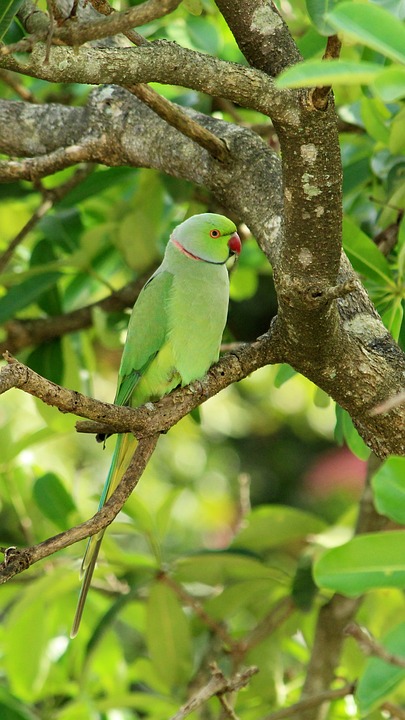Parrots are fascinating creatures with complex and unique behaviors. One aspect of their behavior that is crucial to understand is flock calling and contact calls. These vocalizations serve important purposes in parrot social dynamics, communication, and overall well-being.
Flock calling is a vocalization behavior exhibited by parrots to communicate with their flock members. It serves to maintain social cohesion, share information, and establish a sense of security within the group. Flock calling helps parrots stay connected and aware of each other’s presence, even when they are out of sight. By vocalizing, parrots convey their location, emotional state, and establish a bond with their flock members.
Contact calls, on the other hand, are short, repetitive vocalizations made by individual parrots to stay in auditory contact with their flock members. These calls serve as a form of reassurance, ensuring that the group is together and that no one is lost or left behind. Contact calls are particularly important when parrots are separated or exploring their environment. They help parrots find each other and maintain a sense of security.
The importance of flock calling and contact calls cannot be overstated. These vocalizations contribute to bonding and social cohesion among flock members. By vocalizing, parrots foster a sense of togetherness and unity within the group. This is essential for their emotional well-being and overall happiness.
Flock calling and contact calls also play a crucial role in the safety and security of parrots. As highly social animals, parrots rely on their flock for protection against predators. By vocalizing, they maintain awareness of each other’s whereabouts, allowing for a coordinated response to potential threats. These vocalizations serve as an alarm system, alerting others to danger and ensuring the safety of the entire group.
In addition to bonding and safety, flock calling and contact calls contribute to the emotional well-being of parrots. These vocalizations provide them with a sense of security, reduce feelings of isolation or distress, and alleviate stress. Regular vocalizations help parrots maintain a positive mental state and promote a healthy emotional balance.
There are several common types of flock calling and contact calls. Location calls are used by parrots to establish their presence and inform other flock members of their location within a specific area. Contact calls, on the other hand, are repetitive vocalizations made to check the whereabouts of flock members and reconnect if separated. Alarm calls are loud and distinctive vocalizations made in response to danger or perceived threats, alerting other flock members and prompting a collective response.
Understanding parrot behavior is essential for providing appropriate care, addressing behavior issues, and creating a stimulating and enriching environment for these remarkable birds. It allows us to meet their emotional needs, establish a deeper bond, and promote their overall well-being.
While parrots can learn to mimic human voices without flock calling and contact calls, it is important not to neglect or disregard these natural behaviors. Encouraging flock calling and contact calls in pet parrots can be done by providing a social environment with plenty of opportunities for interaction, toys, and perches. Spending quality time with your parrot and engaging in regular training sessions can also foster a strong bond and encourage vocalizations.
In conclusion, understanding the importance of flock calling and contact calls in parrot behavior allows us to appreciate their social nature and meet their emotional needs. By recognizing and encouraging these vocalizations, we can establish a deeper connection with our feathered companions and provide them with a fulfilling and enriched life.









